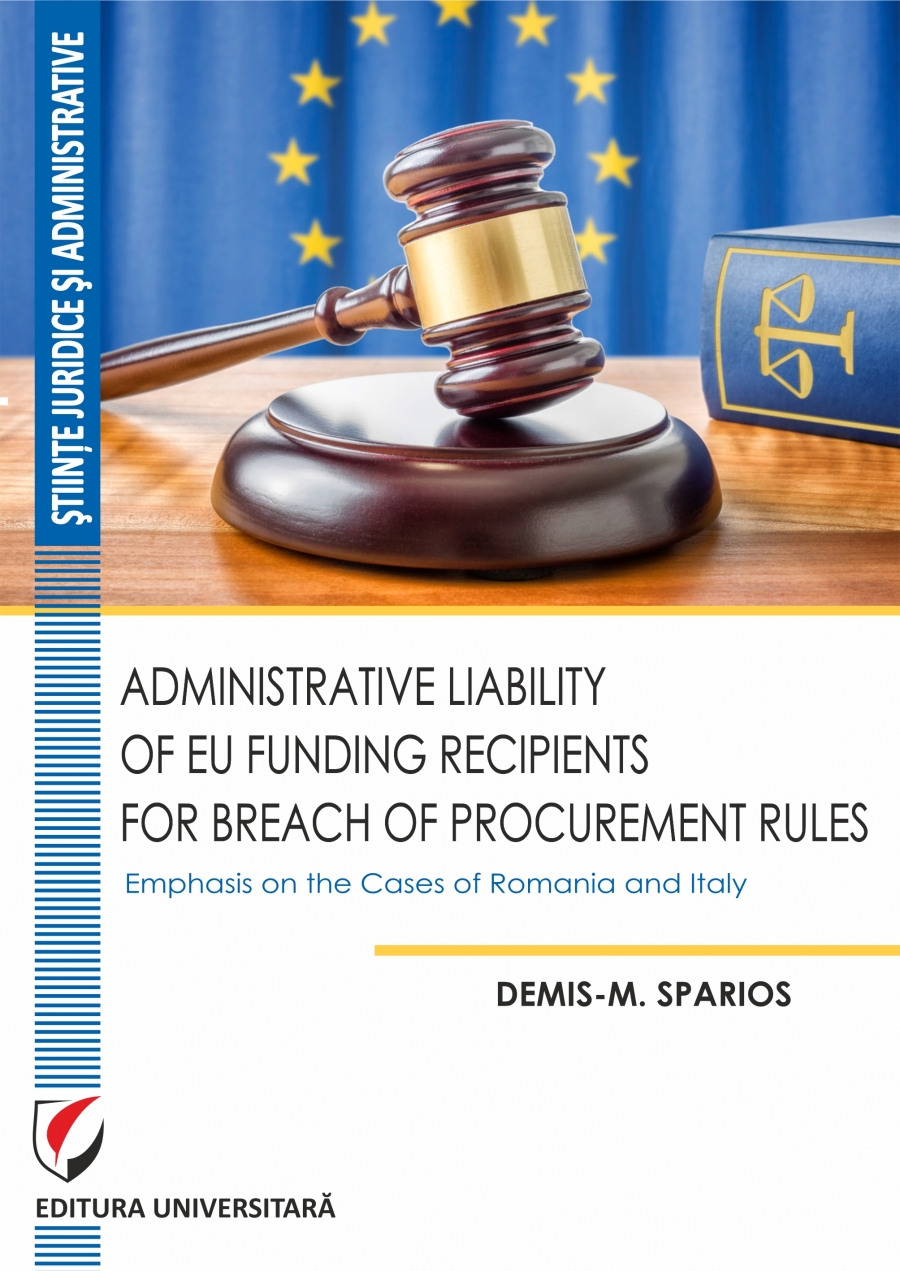Administrative Liability of EU Funding Recipients for Breach of Procurement Rules. Emphasis on the Cases of Romania and Italy
The importance of the Cohesion Policy, developed by the European Union in order to reduce the economic disparities between its various regions, for the newest, as well as for the oldest of its Member States, is indisputable. The weighting of this policy within the balance of main interests of the EU is also an important one and is reflected in the big number of general and specific legal norms that regulate this field at the EU level. These norms are aimed at ensuring the effective assistance provided by the EU to the less developed regions, as well as the proper protection of the financial interests of the Union. This protection is ensured mainly by sanctioning the illicit behaviours of the beneficiaries of the financial assistance, the procedure and conditions of this sanctioning being regulated in detail both at EU level and, especially, at the national level, in the Member States.
The regulation of the management and use of the financial assistance delivered through the EU's Cohesion Policy, including the sanctioning of unlawful behaviours of the beneficiaries, is mostly technical and practical. It is thus not easy to define from the point of view of the legal theory, meaning that the illicit deeds sanctioned by the EU and national law in this field, as well as the sanctions themselves are not expressly attributed to a widely recognised pattern, such as the legal responsibility (liability).
Neither the legislation, at EU or national levels, nor the judicial practice (with very few exceptions) refer to the existence of a liability triggered by the occurrence of irregularities during the use of EU financial assistance. As regards the doctrine, although there have been some references to such a liability, one cannot consider that there is already a theory built in this regard.
The present study aims, in these conditions, at bringing a contribution to the construction of the theory of the liability entailed by the commission of irregularities in the public procurement procedures used within the projects financed by EU structural and investment funds (ESIF). In order to achieve its aim, the book will look at the concept and nature of this liability, at its elements, as well as at the procedure to be complied with in the process of triggering this liability. The liability will be looked at in general, but also its specificities at the national levels of Romania and Italy will be analysed.
The present study has its importance not only from a theoretical point of view, but also from a practical one. Thus, the clarification of what the nature of the liability at hand is, will help to the identification of the principles applicable to this type of liability. Therewith, following the identification of elements of the liability and of their specific features, the finding of irregularities and the determination of the applicable sanctions (financial corrections) will become more accurate and easier. Furthermore, by establishing the nature of the sanctions (financial corrections), the identification of the legal rules applicable to them will be easier and clearer.














